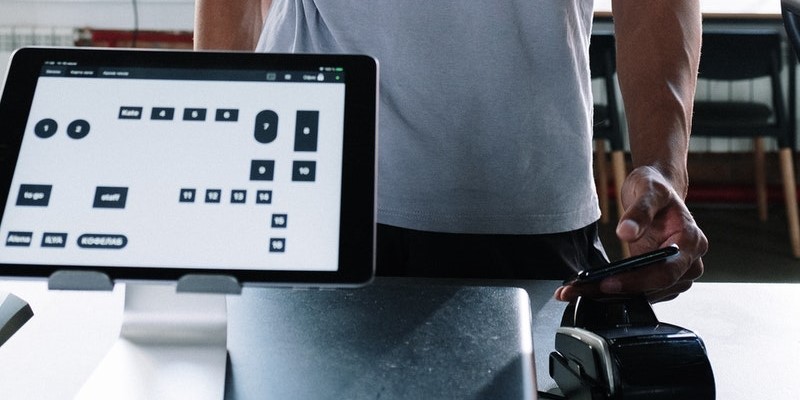As a traveller, don't we all wish the hotel onboarding process, door unlocking, room services, and in-room amenities usage can be carried out digitally, seamlessly, without waiting in line or encountering awkward greetings?
As a hotel operator, that is also a reality that every hotel strives to achieve, but the technology landscape could not meet up with market demands.
Then came the COVID-19 pandemic, which took the entire world by surprise, accelerating digital transformation and the adoption of emerging technologies. Coming in close contact with another person is highly undesirable during this ongoing health crisis.
To win back travellers and fill up rooms again, implementing strict cleaning and sanitisation regime is not enough. Hotels must create a contactless environment in areas that guests frequent the most and look for new opportunities to generate sustainable revenues with the help of suitable technologies.
Read more: Measuring the impacts of COVID-19 on the Hospitality industry

What is the contactless guest experience?
Let’s recall the number of surfaces a guest will touch when arriving and staying at a hotel:
- The front desk
- The elevator
- The door lock to the guest room
- Amenities inside the guest room
Processes, supplies, and buttons at these high-touch, high-traffic areas can be transitioned to a contactless environment to help guests save time, enhance their experience as well as help hotel employees to increase their efficiency.
The willingness to travel and the level of trust now rely heavily on how safe and convenient when accessing hotel rooms and services. It is thus understandable to witness the wave of hotels digitising their once sophisticated in-person experiences and offering them through self-service kiosks or mobile apps.
Read more: Winning the guest in the age of Hospitality personalisation
Contrary to several speculations that travellers feel reluctant to install single-use apps, i.e., apps that only serve one trip, Citron’s study1 released last August reveals that 80 per cent of hotel guests would download a hotel app that “enables them to check-in, check-out and get all information about the hotel.”
Other interesting findings from the study are:
- 73% would download and use an app that would enable them to open the door of their room.
- 47% would be more likely to order room service if the hotel would give them the option of ordering via an app.
- 48% would be more likely to go to the hotel restaurant if the hotel would provide them with the option of ordering food via an app.
As contactless technologies rise to fame post-pandemic, mobile plays a critical role in assisting hotels on their journey to reopening.
How to create a contactless guest experience: the front desk makeover
1. Digital concierge
COVID-19 has forced businesses to re-evaluate their digital strategies and adopt agile solutions at an exceedingly fast pace. In the hospitality industry, hotels are experimenting with mobile applications, cloud property management systems (PMS) and Artificial Intelligence (AI) to create a digital concierge that acts as a convenient, interactive, and personalised information hub for all guest enquiries.
It is estimated that by 2039, the market for connected devices would reach $4.3 billion with its ever-smarter, ever-expanding capabilities2.
The AI-powered digital concierge combined with a robust, cloud-based PMS can transcend hotels from the analogue into the digital age. The combo can do more than just automate the checking in and out process.
The solution transforms it by helping hotels, employees, and guests to:
- Free up manpower, and boost employees' productivity.
- Get updated with real-time information via any common web browser or mobile device without being physically present.
- Quickly update the status of a room, assign and coordinate housekeeping staff, notify potential issues, and shorten the time between check-ins and check-outs.
- Eliminate errors, wrong orders, miscommunication, or missed opportunities.
- Automating the facility booking, upselling services at the right time, and capturing real-time feedback.
- Enabling guests to make payments, unlock their rooms, adjust room conditions according to their preferences, order services and more.
Besides the reception area, where else can this digital concierge intervene to create a completely contactless environment? The simple answer is where there are doors and buttons, specifically the elevator and the guest room door.
Learn more: Everything you need to know about hospitality management solutions
2. The elevator
The elevator is a closed, confined space that makes the two meters/ six feet social distancing requirements almost impossible.
A simple solution would be to have the front desk staff open the elevator door and pre-select guests' appropriate floor numbers from their stations. A better alternative is to empower guests to explore the hotel’s mobile app and the AI-powered digital concierge on their phone to call for the elevator.
On a more futuristic note, a complete zero physical contact option for elevators is underway to become mainstream.
Schindler has developed touchless call and service buttons called CleanCall that utilise sensors to minimise the chance of physically touching any elevator buttons. Therefore, instead of pushing each button to select the desired floor, guests simply place their finger 3 centimetres away from the button surface, and the sensor detects movement and activates the cabin3.
Fujitec also developed similar solutions that leverage sensor technology for floor selection, and Optex created a switch for contactless door opening and closing4.
Read more: The Internet of Things (IoT) and the Hospitality industry
3. The guest room door
Room keys are a staple of every hotel business. It is also the single most innovative item that hoteliers invest in. Keyless entry was once viewed as a primary competitive advantage to high-end, innovative brands. Amidst today's ongoing health crisis, digital, keyless entry for all guests might no longer be a thing of the past.
A definite upside of having a key readily accessible via guests' smart devices, besides convenience, is the costs associated with lock replacement when keys are lost or stolen. Additionally, hotels can actively monitor and grant guest access to other hotel facilities such as the parking lot, gym, pools, or conference rooms.
Nevertheless, hotels looking to replace legacy locks need to pay attention to security issues, particularly when guests may share their digital keys with family members or others within their travelling groups.
Transitioning from a legacy system to the cloud requires a tremendous amount of time, effort as well as resources. Thus, various hotels have opted for a mobile app that integrates well with the current system instead.
Seeing this as an opportunity for growth, vendors have also developed app-less solutions that immediately connect with guests when they access the Wi-Fi network, and from there, direct them to their preferred messaging platform on their smartphones to maintain the engagement. Throughout the entire stay, guests simply open their messaging app, and the digital concierge/ personal virtual assistant is ready to handle their requests. All is done without the need for an additional app download.
This is part 1 of our multiple parts series about "Unmasking the New Face of Hospitality" where we will discuss in-depth the various contactless technologies and opportunities for establishing new revenue models.
Read the complete series here: Part 2 | Part 3 | Part 4 | Part 5
Are you in need of a solution for your hotel? Talk to our consultants and request a demo today!
 English
English  Vietnamese
Vietnamese 


